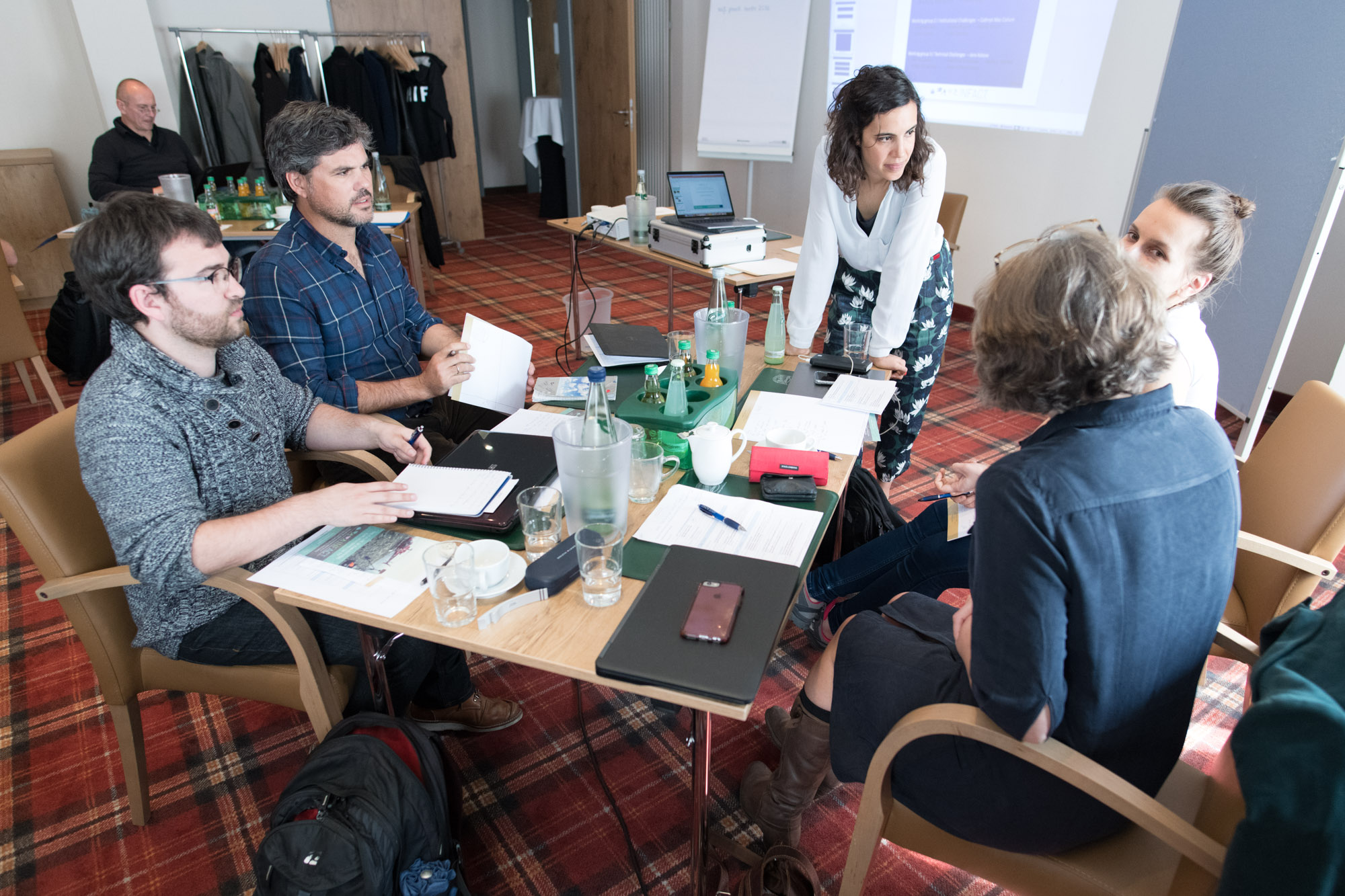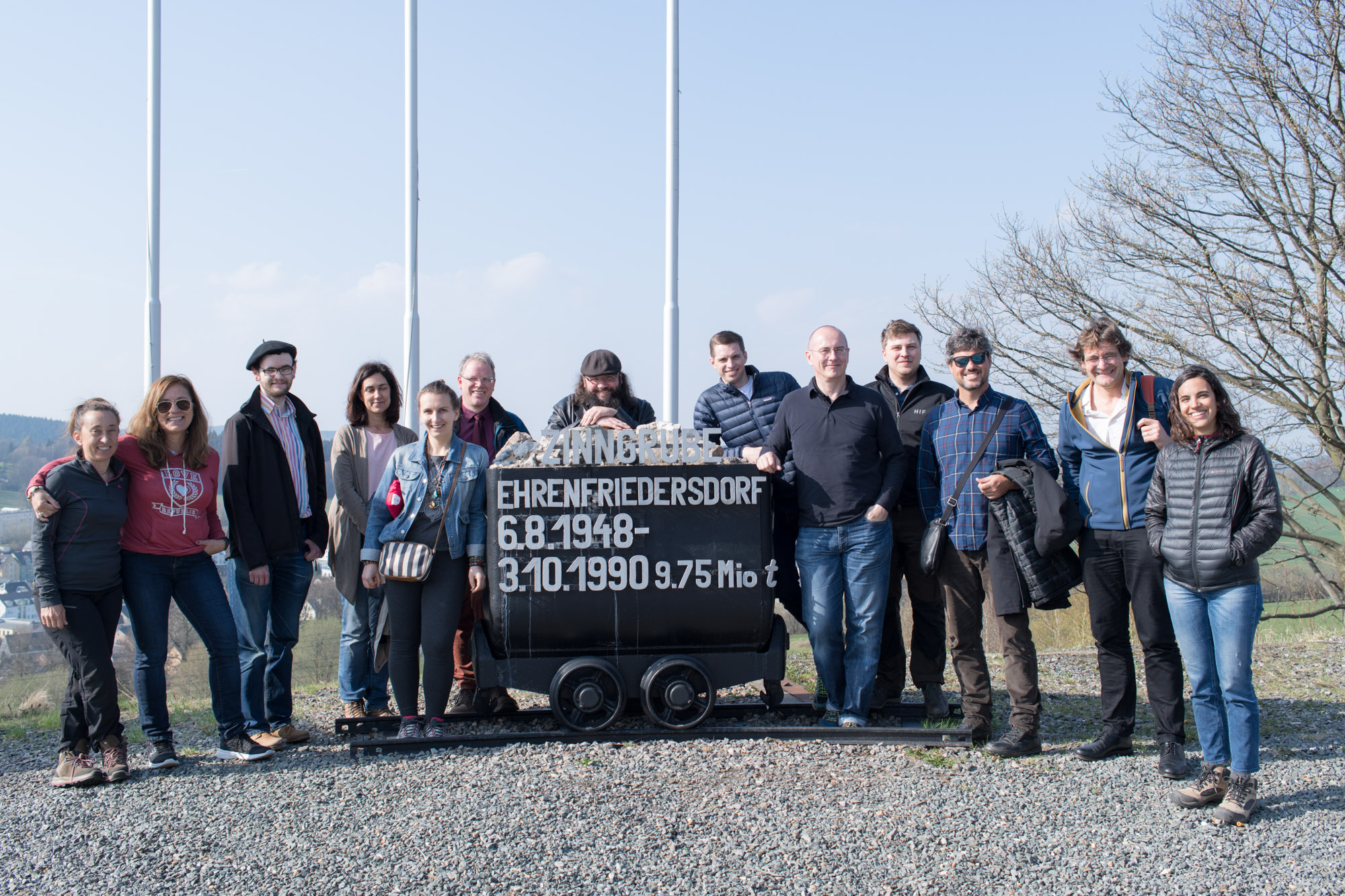The INFACT project’s Operational Team met in Wolkenstein, Germany, from the 16th until the 18th of April 2018 in order to review the work carried out so far and discuss further steps ahead.
INFACT is an EU-funded project that started last November 2017. The 3-years long Horizon2020 project will focus on the social engagement and acceptance of the mining exploration activities necessary for securing raw materials in Europe. In order to do
so, the Innovative, Non-invasive and Fully Acceptable Exploration Technologies (INFACT) project will develop and test new exploration technology and ensure effective engagement of civil society, state, research and industry.

On 16th April, the meeting was dedicated to the stakeholder engagement in the project’s three reference regions located in the south, centre and north of Europe (Spain, Germany and Finland) where the consortium will test the non-invasive exploration technology that is currently under development. This session was attended by the Workpackage 2 members – this work package is focused on the Stakeholder Engagement – and by the reference site delegates.
The work session aimed at defining a common stakeholder selection process and mapping methodology. Main deliverable of the session was for each region a clear vision on:
- identify key stakeholders and their interests in, importance to and influence over exploration and mining operations in the three reference sites;
- identify local institutions and processes upon which to build; and
- provide a foundation and strategy for engagement in the project
The session on 17th April, started by the welcome and introduction of Leila Ajjabou (INFACT Project Coordinator) and Richard Gloaguen from the Helmholtz Institute Freiberg for Resource Technology at the Helmholtz-Zentrum Dresden-Rossendorf (HZDR). The importance of the social engagement relating to the exploration activities and the need to keep the public informed were highlighted. Moritz Kirsch (HZDR) gave an overview about the geophysical methods used within the project emphasizing the importance of making them accessible and understandable to the public. In order to identify the questions or concerns of the public, workshops for the local communities are planned at the reference sites in June 2018. Following this overview, a workshop on the challenges in exploration activities took place. Participants were divided into three groups, each of them representing one point of view in relation to the challenges an exploration activity faces: challenges relating to social acceptance (local communities), from institutional and from the technical point of view.
Stéphane Ruiz, from the Innovation and Development Agency of Andalucía (IDEA), gave a complete overview of Workpackge 6, which will be constructing a Business Model that will establish technical, legal and administrative conditions for sustainable management and use of the EU exploration test sites. Stéphane Ruiz detailed the first steps for partners to contribute to the creation of this model.
Later, partners visited the Geyer region, one of the three reference sites where the sustainable exploration technology the project is developing will be tested. This included a guided visit to Zinngrube Ehrenfriedersdorf, a former tin mine.

During the last day of the meeting, Ludger Benighaus, from Dialogik, shared the results of the online survey for citizens conducted in the areas of the reference sites. The results represented the opinion of more than 3000 people in the 3 countries concerned; and showed rather positive expectations toward mining industry.
To close the session, Anita Demény, from the European Federation of Geologists (EFG) presented the communication activities carried out for the impact creation, such as the design of the project’s visual identity and the development of the project website.

